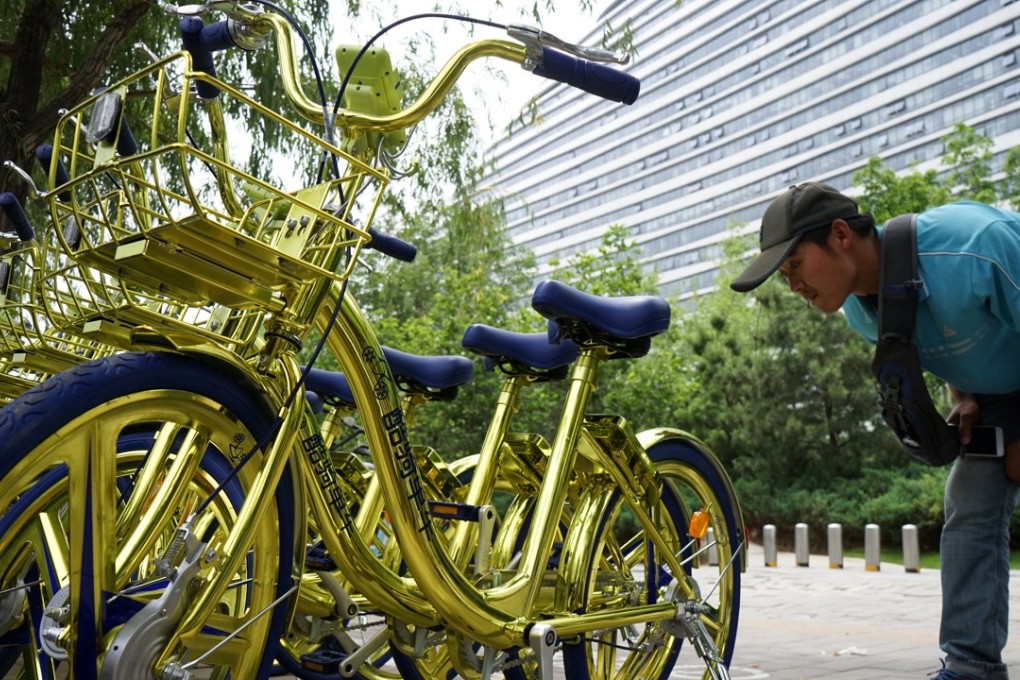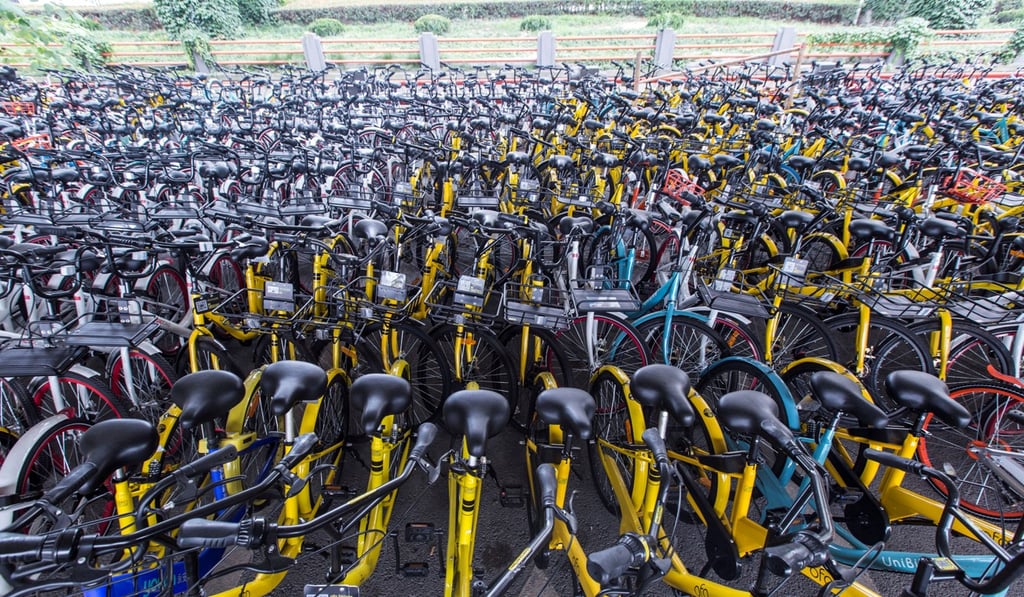New | Chinese Bike-sharing services attract more than 100 million users in the past year
Hu Weiwei, co-founder of market leader Mobike, says a tenth of China’s urban dwellers now choose to cycle as their main mode of transport, up from 5 per cent just 12 months ago

China’s nascent bike-sharing industry has attracted more than 100 million users just a year after its debut in the country’s tech scene, as startups backed by Tencent Holdings and Alibaba Group Holding touted free rides and carpeted urban sidewalks with millions of bikes.
The number of people using mobile apps to rent bikes reached 106 million by the end of June, says China Internet Network Information Center, the Chinese government’s online industry research facility.
The centre, which for the first time included bike-sharing in its biennial internet report, said around 14 per cent of China’s 751 million internet users have now used smartphones to rent a bike, fueled by “technology development” and “capital injection”.

Bike-sharing only emerged in China’s rapidly changing tech scene after startup Mobike launched its services in Shanghai in April 2016, but has now become one of the country’s fiercest online battlefronts, being fought out by more than 30 players.
Hu Weiwei, one of the co-founders of Mobike, said the most satisfying thing for her bike-sharing venture is that a tenth of China’s urban dwellers now choose a bike as their main mode of transport, up from 5 per cent a year ago.
“The government is actively encouraging bike-sharing, too, offering a lot more designated parking areas,” she told a forum in Beijing on Saturday.